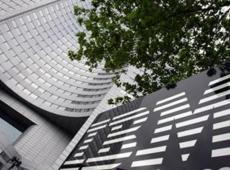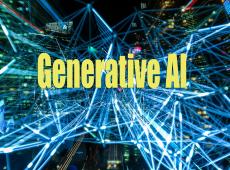Nilekani Warns of AI Dead Ends: Businesses Must Future-Proof
By Rediff Money Desk, New Delhi Jun 03, 2024 20:24
Infosys Chairman Nandan Nilekani stresses the need for businesses to future-proof their AI infrastructure to avoid technological dead ends and ensure compliance with evolving regulations.

Photograph: Kind courtesy Movie Ex Machina
New Delhi, Jun 3 (PTI) To keep up with fast-paced technology, businesses need to "future-proof" their AI infrastructure to avoid getting stuck at a dead-end with outdated technology, Infosys Chairman Nandan Nilekani said.
With nations around the world regulating artificial intelligence (AI), companies need to develop their applications to ensure compliance with different regulations, he wrote in Infosys's annual report.
"Given that the leaderboard of technologies will be changing at a bewildering pace, enterprises will have to 'future proof' their AI infrastructure with suitable abstractions to be able to switch models easily and not be trapped in a technological cul de sac," Nilekani said.
He further said the enterprises would need both an AI foundry for experimentation and an AI factory for scaling up.
"AI architecture must facilitate an approach that combines the analytical thinking of the left brain with the intuitive approach of the right brain. The constraint of resources will require a transparent way of identifying the highest value AI use cases," he said.
Nilekani, 68, said the brooding period of the GenAI revolution is over as clarity has started to emerge from the chaos and chatter of the last 18 months.
"The initial hyperventilation of AI doomerism and the risk of human extinction by AI advances like Artificial General Intelligence (AGI) has quietened down... gen AI has enormous potential for good when explored and advanced within the guardrails of responsibility.
"Many of the doomsday prophets pleading for extensive AI regulation have revealed themselves to be just protectionists who want to limit the fruits of gen AI to a few companies and investors," he said.
There won't be a scenario where there will be 'one model to rule them all', Nilekani said.
He said the real power of AI will come from configuring all the different models and tools to get the best solutions.
"This is not very different from previous generations of technology. What's more, the rise of powerful open-source AI models has accelerated the deployment of AI to solve tough business and societal challenges.
"Although there could be concentration risk in the hardware and cloud infrastructure space, as we move into actual use cases, a thousand flowers will bloom," he said.
He said gains from automation must lead to talent redeployment in new areas with new opportunities.
"We must learn from applying AI to ourselves, be it in creating an AI-first enterprise or in accelerating the massive talent amplification that's now needed," he said.
Change will have to be embraced -- not resisted, he added.
With nations around the world regulating artificial intelligence (AI), companies need to develop their applications to ensure compliance with different regulations, he wrote in Infosys's annual report.
"Given that the leaderboard of technologies will be changing at a bewildering pace, enterprises will have to 'future proof' their AI infrastructure with suitable abstractions to be able to switch models easily and not be trapped in a technological cul de sac," Nilekani said.
He further said the enterprises would need both an AI foundry for experimentation and an AI factory for scaling up.
"AI architecture must facilitate an approach that combines the analytical thinking of the left brain with the intuitive approach of the right brain. The constraint of resources will require a transparent way of identifying the highest value AI use cases," he said.
Nilekani, 68, said the brooding period of the GenAI revolution is over as clarity has started to emerge from the chaos and chatter of the last 18 months.
"The initial hyperventilation of AI doomerism and the risk of human extinction by AI advances like Artificial General Intelligence (AGI) has quietened down... gen AI has enormous potential for good when explored and advanced within the guardrails of responsibility.
"Many of the doomsday prophets pleading for extensive AI regulation have revealed themselves to be just protectionists who want to limit the fruits of gen AI to a few companies and investors," he said.
There won't be a scenario where there will be 'one model to rule them all', Nilekani said.
He said the real power of AI will come from configuring all the different models and tools to get the best solutions.
"This is not very different from previous generations of technology. What's more, the rise of powerful open-source AI models has accelerated the deployment of AI to solve tough business and societal challenges.
"Although there could be concentration risk in the hardware and cloud infrastructure space, as we move into actual use cases, a thousand flowers will bloom," he said.
He said gains from automation must lead to talent redeployment in new areas with new opportunities.
"We must learn from applying AI to ourselves, be it in creating an AI-first enterprise or in accelerating the massive talent amplification that's now needed," he said.
Change will have to be embraced -- not resisted, he added.
Source: PTI
Read More On:
DISCLAIMER - This article is from a syndicated feed. The original source is responsible for accuracy, views & content ownership. Views expressed may not reflect those of rediff.com India Limited.
You May Like To Read
TODAY'S MOST TRADED COMPANIES
- Company Name
- Price
- Volume
- GTL Infrastructure
- 2.93 ( -4.87)
- 226206286
- IFL Enterprises
- 1.30 (+ 4.84)
- 81461564
- Vodafone Idea L
- 16.79 (+ 0.66)
- 67447398
- NCL Research
- 0.95 ( -4.04)
- 31996628
- Franklin Industries
- 3.73 (+ 3.32)
- 21511209
MORE NEWS

Navi Mumbai Airport ILS Signal Testing Begins
The Airports Authority of India (AAI) has begun ILS signal testing at the...

Air India VRS for Non-Flying Staff Ahead of...
Air India has announced a voluntary retirement scheme (VRS) and voluntary separation...
Fisher Groups Oppose WTO Fisheries Subsidy Talks
Small-scale fisher groups from India, Indonesia, and Bangladesh demand WTO keep...












 © 2024 Rediff.com India Limited. All rights reserved.
© 2024 Rediff.com India Limited. All rights reserved.